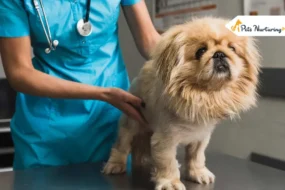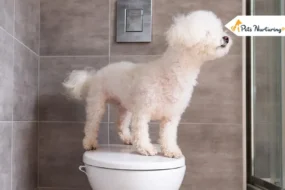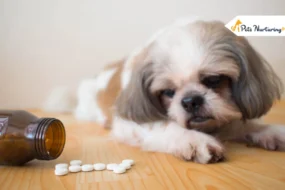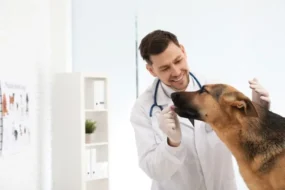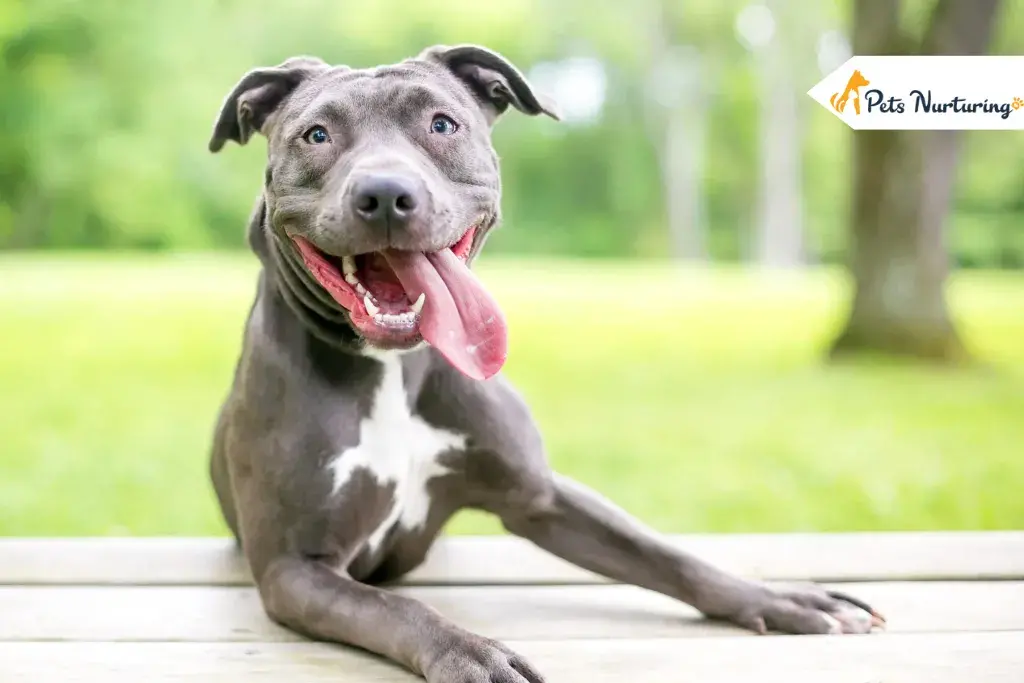
We all picture a very happy or tired dog, breathing rapidly with their tongue hanging out when we hear the word panting. But have you ever wondered why dogs pant? And what exactly is panting?Let’s get to know it a little better. All warm-blooded mammals (including us) maintain their body temperature in sync with the temperature of their surroundings, to carry out normal physiological functions, this phenomenon is known as thermoregulation.
How Does Thermoregulation Work?
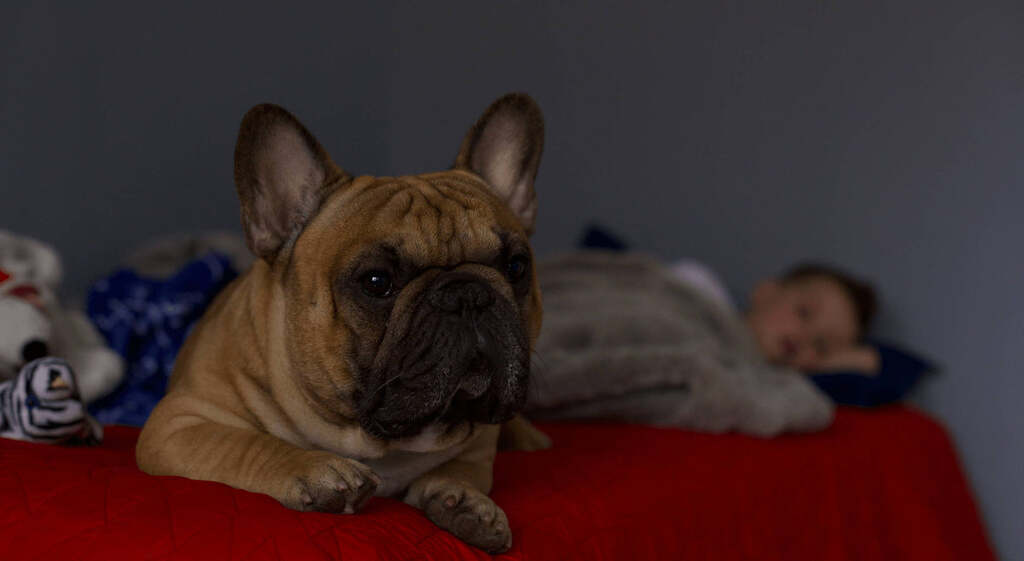
Let me explain this in very simple terms: human bodies sweat to cool themselves down during the summers, and the amount of water consumption is also high to make up for the loss.
While in winter, the body stores more fat to keep itself warm, the amount of water required is less, and many such things. All of which is to keep the body in harmony with its surroundings.
When it comes to dogs, they do not have sweat glands like humans but they too need to cool off as much as we do on a hot day. So they pant instead.
The only place dogs have sweat glands are their paw pads but that isn’t enough to keep them cool and comfortable. Panting helps them circulate air throughout their body and maintain the temperature balance.
Panting!
Panting is a fast, shallow form of breathing during which the water from the surface of a dog’s tongue, inside of their mouth as well as from the upper respiratory tract, quickly evaporates.
Panting also increases the oxygen intake, supplying more oxygen to the bloodstream. During this process, they exchange hot air from their body with cooler air present in the environment.
Thus it’s a healthy mechanism that helps your dog regulate its temperature and prevent its body from overheating.
Although panting is for a good reason, that may not be the case sometimes, so we understand if you are worried if your dog is panting too much or if their panting is related to some abnormal, underlying cause.
We often get asked questions like, ‘why is my dog panting at night?’, ‘why is senior dog panting at night?’, ‘Why is my dog restless and panting at night?’, ‘dog heavy panting at night?’
You may think that your dog is panting for absolutely no reason, but there’s always some reason behind it. If you figure out the reason behind their panting, you may feel a sense of peace and worry less over why and when it is happening.
The answer to this question can be found by considering the situation your dog might be in. Is there anything that may be making your dog anxious? Are they dehydrated or unwell? Maybe they are feeling hot? and so on.
How to Differentiate Panting with Laboured Breathing?
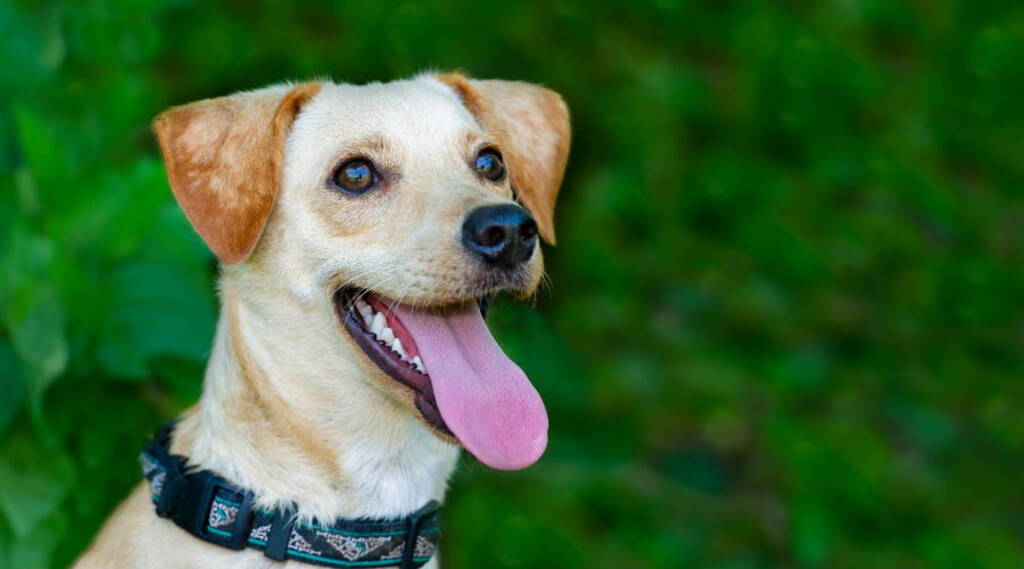
Panting has a natural flow, with no signs of abnormality or discomfort. Whereas laboured breathing is a combination of strained breathing accompanied by crying, whining or abnormal sounds from the trachea or nostrils, which may be caused by a blockage.
If you notice laboured breathing, please consult a vet immediately.
All the questions like ‘why is my dog panting at night?’, ‘why is senior dog panting at night?’, ‘Why is my dog restless and panting at night?’, ‘dog heavy panting at night?’ may have similar answers if your dog’s panting is due to normal reasons and not a worrisome cause.
We’ll discuss all normal as well as abnormal panting and how to differentiate between them!
Normal panting: when your dog heats up from being too excited or playing too much, panting is a normal and healthy response for cooling them down. But there may be some abnormal causes leading to panting. How do we identify them?
- Regular, normal panting has a natural flow to it. It does not look like the dog’s making a lot of effort to pant, whereas if the panting is abnormal, you’ll see the dog putting excess, unwarranted energy into breathing and panting than usual.
- Abnormal panting is disproportionate.
- Abnormal panting may be accompanied by laboured breathing and you may hear it louder and coarser.
- It’ll happen even when your dog isn’t in a hot environment, tired or excited/anxious.
Why Is My Dog Panting at Night?
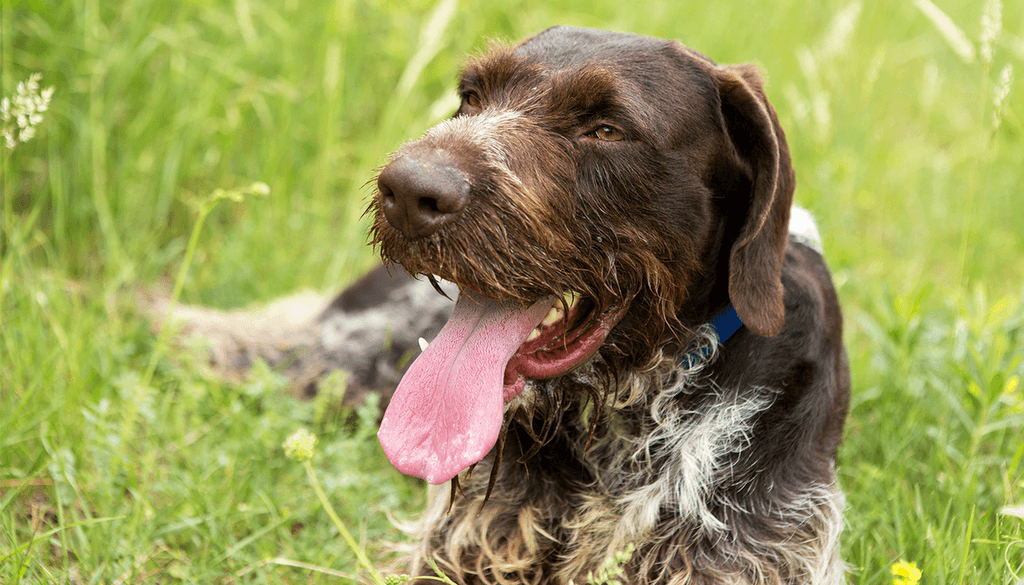
Let’s begin with some normal causes of panting. If your dog has one of these reasons to pant, there’s absolutely nothing for you to worry about.
People usually worry a lot if it’s their senior dog panting as it makes them wonder if the dog is experiencing some kind of pain. So here are some Non-dangerous causes behind a senior dog panting at night.
- Cooling down, as we discussed earlier, is completely normal.
- Genetics : Some dogs are genetically predisposed to pant more than other breeds. This includes brachycephalic breeds like French bulldogs, American bulldogs, boxers, pugs, etc. these breeds have narrow upper respiratory tracts which cause them to pant more and there’s nothing to worry about. Along with panting, snoring and snorting are common and normal in these breeds too.
- Age : Age is one of the answers to your dog’s heavy panting at night. Ageing is accompanied by unpleasant changes to an animal’s body, and panting is one of those. If you keep your dog healthy with a good diet and proper exercise, this is less likely to happen.
- Stress or anxiety : it is normal for your dog to pant when they are in a stressful situation. This may differ from dog to dog. Being around many dogs may cause some dogs to get stressed if they aren’t social, leading to panting.
Try removing the cause of stress, comfort them with a massage, cuddle or talk, cool them down and your dog will soon be back to normal.
Dogs that get easily and highly excited tend to pant more too.
Excess panting at night may make you ask questions like ‘Why is my dog restless and panting at night?’, ‘dog heavy panting at night?’
Some of the causes of abnormal panting are as follows:
If you suspect abnormal panting, we advise you to begin with taking your dog’s temperature. The normal temperature range for dogs is 101 to 102.5 degrees Fahrenheit.
Unlike humans, a dog’s temperature is recorded per-rectally. So just hold your dog still and record the temperature by putting the tip of the thermometer in their but. Apply some coconut oil or petroleum jelly at the tip to slide it in smoothly.
- Heatstroke : taking your dog out in extremely hot weather or overexerting them can lead to a heat stroke which may cause panting. Avoid going for walks during the sunny hours, keep your dog well hydrated to prevent heat strokes.
- Signs: excessive panting with temperature over 104 degrees Fahrenheit, increased heart rate, wobbly gait, abnormal mentation, red gums, glazed eyes. In extreme cases, seizures may be seen. If you notice any of these, please visit your vet immediately.
- Respiratory issues : bronchitis, pneumonia or other such pulmonary issues may lead to increased panting due to difficulty in breathing.
- Signs: lethargy, coughing and laboured breathing along with panting.
- Cushing’s syndrome : panting at night in senior dogs or even adult dogs may be due to Cushing’s disease as in such cases the cortisol level in blood increases and cortisol is a stress hormone that initiates panting.
- Signs : potbelly, excessive thirst and urination, hair loss and shaking.
- Allergies : many times, panting may be provoked along with an allergic response. Consider insect bites as they may lead to swelling of the tongue and throat, leading to excessive panting. Allergies are triggered by numerous causes and it is difficult to determine the cause.
- Anaemia : decreased haemoglobin means low oxygen supply to the tissues. This can make your dog gasp and pant to get enough air. Get a CBC done to confirm this cause.
- Signs : confusion, weakness, exercise intolerance, pale mucous membrane, tachycardia, loss of appetite.
- Heart disease : cardiac issues may be one of the reasons your dog is restless and panting at night. Old dogs are at a greater risk.
- Signs : shortness of breath, rapid weight loss, fatigue, dry cough, etc.
- Pain : most senior dogs experience a lot of pain due to arthritis or other conditions which may lead to panting. Even young dogs that are sick and in pain may show constant panting.
- Signs : growling, groaning, shallow breathing, hiding, agitation and increased heart rate.
- Obesity : obese dogs get tired and heated up easily which in turn causes excessive panting.
Final Thoughts
If your dog has a normal amount and reasons for panting (check in the cases mentioned above). There is nothing you need to worry about, but if you notice anything that’s even close to abnormal panting or may be due to some underlying pathological condition, please visit your vet immediately to rule out the possibility of abnormal panting and underlying illness.
Till the time you take your dog to a vet, you can calm them down by offering them water, talking to them, comforting them by being close to them, reducing the temperature of the room, removing any factor that may be causing stress, massaging the back of their ear, putting a piece of soothing music or even distracting them by playing their favourite game.
Also Read :








